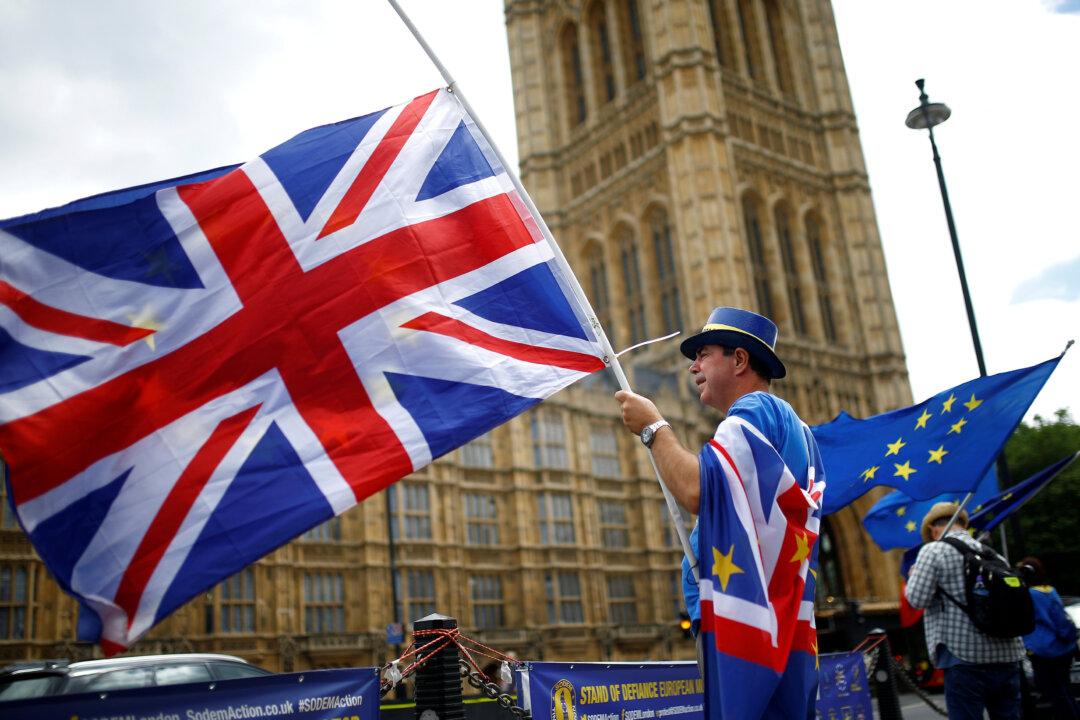LONDON—The shelves of Britain’s first “social supermarket” are stacked with surplus foods that would have otherwise gone to waste, offered at up to a third of normal retail prices. The store opened its doors to customers in Barnsley, Yorkshire on Monday.
The store is accessible via membership card and is available only to shoppers on benefits such as income-based jobseeker’s allowance or pension credit. Around 500 residents in the area have been invited to participate.
Although a first in the UK, the idea behind the store is not new. Around 1000 similar stores have already been set up in Europe, with around 600 of them in France.
The organization behind the initiative in the UK, Community Shop, is already an industry expert in providing surplus food solutions for supermarket brands. Besides this store, Community Shop is looking to open more locations in the UK in 2014.
Social entrepreneur, Sarah Dunwell, who is directing the pilot scheme at Company Shop, Community Shop’s parent company, said that the stores will act as a “bridge between food charities and the mainstream retail shopper.”
“It’s designed to take the pressure off people who have a low family budget,” she said.
Whereas food banks give immediate support, Dunwell said that social supermarkets can provide a long-term solution for people living on the poverty line.
Supermarket chains Asda, Tesco, Morrisons, Tetley, Co-operative Foods, Ocado, Marks & Spencer and manufacturers Young’s and Muller are supporting the scheme. All are providing surplus food to the Community Shop.
The global snacking company Mondelez International, owner of Cadbury and the brands formerly owned by Kraft Food, is also taking part.
Tony Bilsborough of Mondelez International said they are finding innovative ways to ensure surplus food “reaches people’s plates.” They are looking to support the scheme as it rolls out to other areas.
In the first six months of this year, Tesco produced 28,500 tonnes of food waste. Dunwell said the scheme provides an “ethical solution to waste disposal.”
No Compromise on Quality
Dunwell stressed that the store is providing good quality food that are all in date.
What is different, she explained, is that there will be less choice.
“There will always be cheese but maybe one day it will be cheddar and another day it will be Red Leicester,” she said.
In addition, the stores carry frozen food products with labels from competing supermarket chains that normally wouldn’t be seen together.
“For example, you’ll get an Asda lasagna, next to a M&S lasagna, next to a Tesco lasagna. Actually I like looking at those next to each other.”
Other items could be trial products or have labelling errors. The store will not serve any alcohol or tobacco.
Dunwell said that the social supermarkets are expected to be self-sufficient after the first year. John Marren, chairman of Company Shop, is investing in the project until it hits profit.
Six stores are forecast to open in London by mid 2014, backed by Mayor of London Boris Johnson and chairwoman of the London Food Board Rosie Boycott. Twenty stores are projected to open in the UK by the end of 2014.





